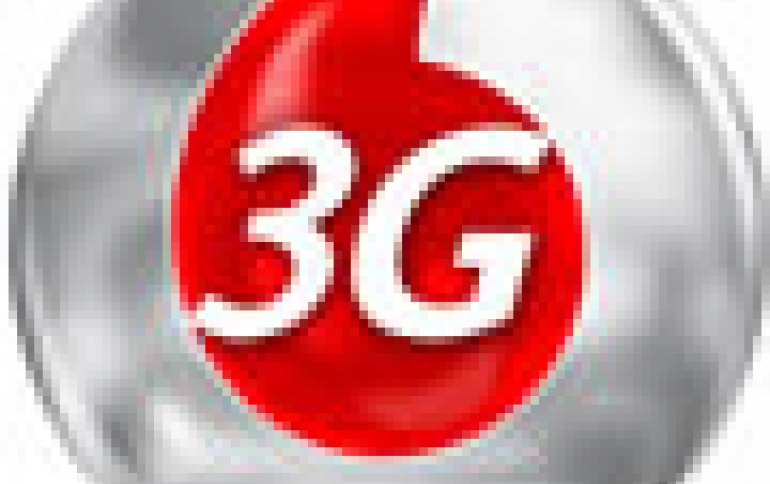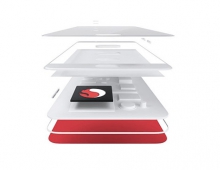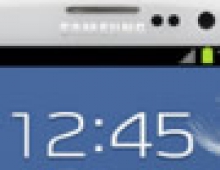
Japanese Cellphone Carriers to Offer Enhanced 3G
Japanese major cellphone carriers are forging international alliances to push next-generation services at fiber-optic speed, and allow mobile phone users to exchange TV image quality videos via e-mail.
NTT DoCoMo Inc. and KDDI Corp. are trying to speed up the current third-generation (3G)
technologies.
Last winter, DoCoMo joined with 25 companies, including carriers and manufacturers, to promote what it calls Super 3G. It will be based on the company's Foma 3G format.
KDDI, on the other hand, began discussions with 28 partners in May on a new telecommunications protocol, dubbed Ultra 3G.
The emerging technologies are generally referred to as Beyond 3G in the telecommunications industry.
Industry officials say it will be easier to persuade subscribers to switch to a new standard if a broad service area outside Japan is established from the outset through international alliances.
A key advantage of adopting modified 3G technologies, rather than leaping to an entirely different 4G standard, is that subscribers can continue to use conventional 3G handsets.
Both DoCoMo and KDDI aim to enhance data transmission speeds to about 100Mbps, which will allow subscribers to exchange videos of TV image quality via e-mail.
That speed is tens of times faster than standard 3G services, which are already hundreds of times faster than the current 2G technologies.
The two carriers both plan to decide basic specifications in 2007 and commercialize the technologies within five years.
KDDI, which operates a fixed-line telecommunications network, intends to offer a cross-mode service that would use of the most cost-effective access, such as cellular, fiber optics and wireless LANs, depending on the location of the caller.
The carriers hope that new, more attractive services, based on mobile broadband networks, will entice subscribers to spend more.
But some industry officials caution that users will not embrace new technologies, however superior they are, unless they are offered at competitive prices.
For the modified 3G technologies, DoCoMo is working with such European carriers as Britain's Vodafone Group Plc, France's Orange SA, Germany's T-Mobile, and Telecom Italia.
Other allies include Cingular Wireless of the United States and China Mobile Communications Corp.
KDDI is teaming up with U.S. carriers Verizon Wireless and U.S. Cellular, Canada's Bell Mobility, South Korea's SK Telecom and Japan's eAccess Ltd.
DoCoMo became the world's first carrier to commercialize 3G technologies with its Foma standard in 2001.
Last winter, DoCoMo joined with 25 companies, including carriers and manufacturers, to promote what it calls Super 3G. It will be based on the company's Foma 3G format.
KDDI, on the other hand, began discussions with 28 partners in May on a new telecommunications protocol, dubbed Ultra 3G.
The emerging technologies are generally referred to as Beyond 3G in the telecommunications industry.
Industry officials say it will be easier to persuade subscribers to switch to a new standard if a broad service area outside Japan is established from the outset through international alliances.
A key advantage of adopting modified 3G technologies, rather than leaping to an entirely different 4G standard, is that subscribers can continue to use conventional 3G handsets.
Both DoCoMo and KDDI aim to enhance data transmission speeds to about 100Mbps, which will allow subscribers to exchange videos of TV image quality via e-mail.
That speed is tens of times faster than standard 3G services, which are already hundreds of times faster than the current 2G technologies.
The two carriers both plan to decide basic specifications in 2007 and commercialize the technologies within five years.
KDDI, which operates a fixed-line telecommunications network, intends to offer a cross-mode service that would use of the most cost-effective access, such as cellular, fiber optics and wireless LANs, depending on the location of the caller.
The carriers hope that new, more attractive services, based on mobile broadband networks, will entice subscribers to spend more.
But some industry officials caution that users will not embrace new technologies, however superior they are, unless they are offered at competitive prices.
For the modified 3G technologies, DoCoMo is working with such European carriers as Britain's Vodafone Group Plc, France's Orange SA, Germany's T-Mobile, and Telecom Italia.
Other allies include Cingular Wireless of the United States and China Mobile Communications Corp.
KDDI is teaming up with U.S. carriers Verizon Wireless and U.S. Cellular, Canada's Bell Mobility, South Korea's SK Telecom and Japan's eAccess Ltd.
DoCoMo became the world's first carrier to commercialize 3G technologies with its Foma standard in 2001.




















